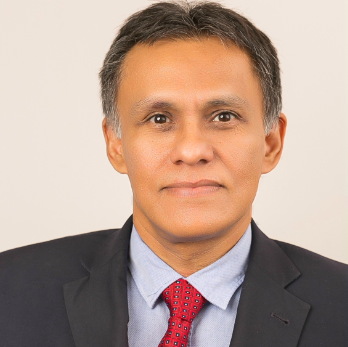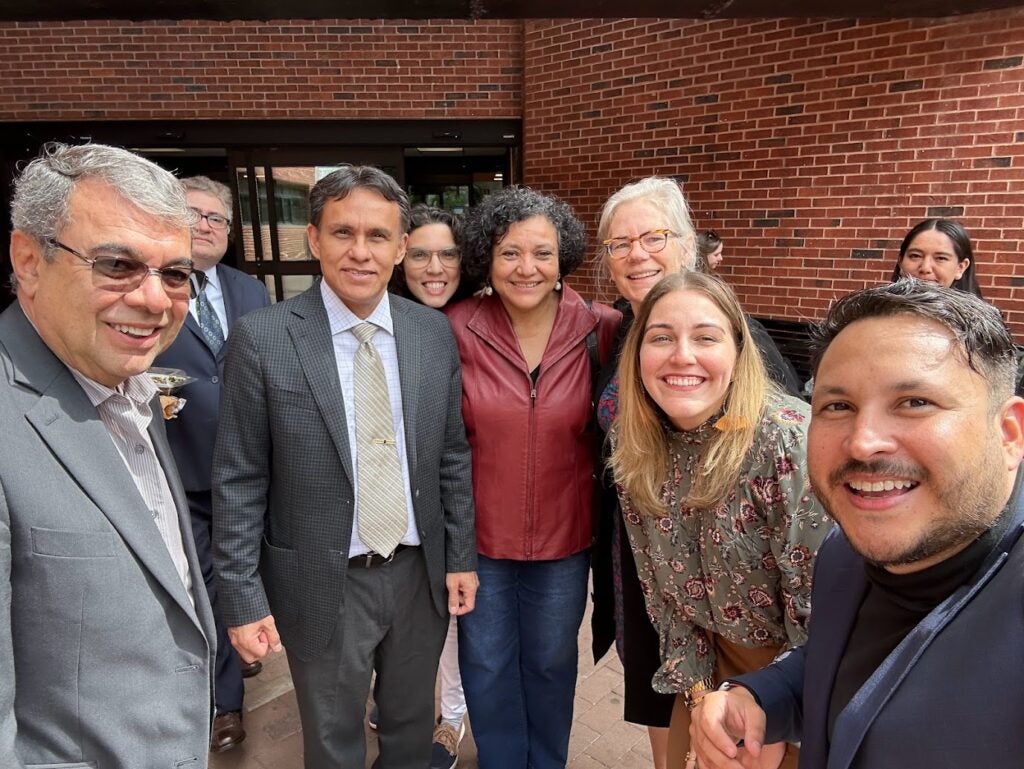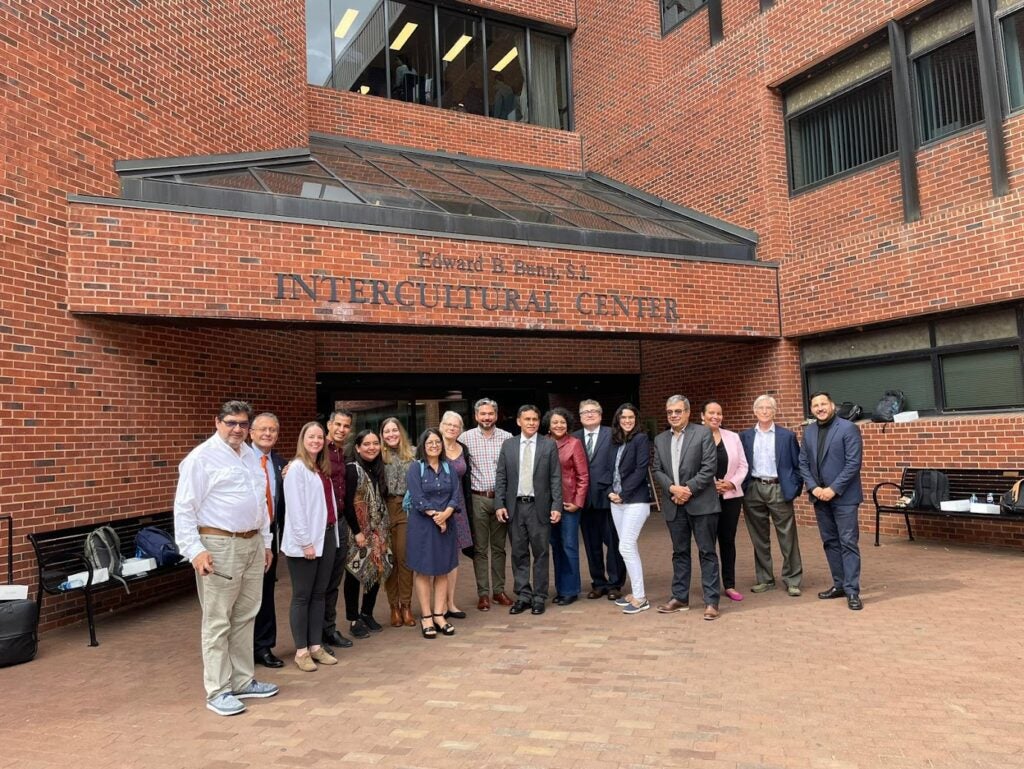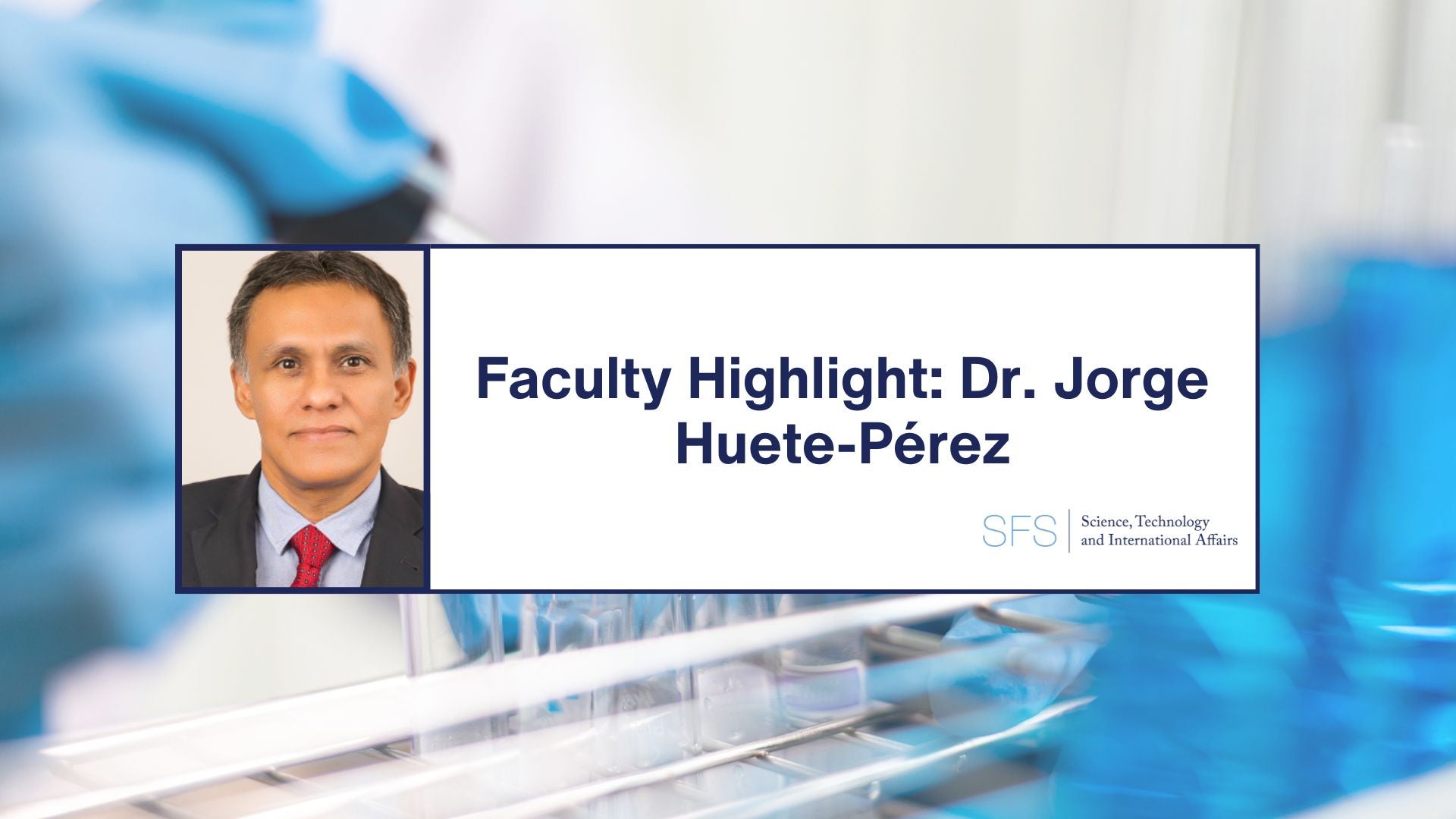Faculty Highlight: Dr. Jorge Huete-Pérez — Bridging Science, Policy and Global Impact

Jorge Huete-Pérez
A Lifelong Curiosity for Science
“I was always interested in biology, mostly, trying to learn the mechanisms of life processes,” said Prof. Jorge Huete-Pérez, Professor in the Science, Technology and International Affairs (STIA) Program at Georgetown University. Originally from Nicaragua, Huete-Pérez’s path to becoming one of Central America’s top scholars in biotechnology began with an international academic journey that took him from Russia to Brazil and ultimately to the University of California, San Francisco, where he conducted much of his research and training.
From the Lab to Science Policy
As his scientific career advanced, Huete-Pérez realized that his ambitions extended beyond the lab bench. “I wanted to use the sciences for sustainable development in Central America. That was a large motivation that I’ve had throughout my scientific career.”
After returning to Nicaragua, he established a successful laboratory despite the challenges of conducting research in a developing country. “I experienced firsthand how useful science policy can be to improve national capacity building —but also for ensuring that scientific knowledge directly informs and impacts decision making for the benefit of society.”
Founding the Academy of Sciences of Nicaragua
His leadership in founding the Nicaraguan Academy of Sciences and later serving as its first president gave him “an opportunity to have a say in advising the government regarding scientific decisions and the need to improve the sciences for development in Central America.”
Huete-Pérez’s growing expertise in science policy eventually led to research at Harvard University’s Kennedy School of Government. However, political repression in Nicaragua forced him into exile, a turning point that brought him to Georgetown.
Finding a Home at Georgetown
“Because of political repression in Nicaragua, I was forced into exile. That’s how I landed at Georgetown University. The good thing is that I found the STIA program, which is a perfect fit for me because I get to do what is my passion: training the next generation, in both the sciences and science policy issues.”
At Georgetown, Huete-Pérez designed courses that connect science and policy through a global development lens. “I teach the basic fundamentals of biotechnology and the implications on society in particular. We go over the impact of these technologies in societies and how they can be useful for development.”
He also leads a course on sustainability and large infrastructures: “As we know, large infrastructure is essential for developing countries… However, if it’s not done in a sustainable manner, the consequences can be detrimental to those societies. So, our goal is to learn how to design projects that are more intrinsically sustainable throughout the world.”


Research on the Bioeconomy and Sustainability
Beyond teaching, Huete-Pérez continues his research on the bioeconomy in Latin America. “I have been focusing on the bioeconomy… studying the relevance of how to improve the approach to the bioeconomy in Latin America. This is connected both to the biomedical area, which is my area of expertise, but this is also important in terms of sustainability and how climate change necessitates new agriculture that could be supported with new biotechnologies.”
His students often get a hands-on view of emerging technologies. “We take students of the biotechnology course to a lab in the Medical School allowing them to observe scientists conducting CRISPR experiments firsthand. Students are able to observe the meticulous process of how scientists prepare and design experiments. This is vital, as these are experiments that can have an impact on the life of people if you use these technologies for therapies.”
He emphasizes the ethical and societal dimensions of these breakthroughs. “One of the most important things is understanding how all these emerging technologies need to be handled in the appropriate way in terms of regulation, ethics and social responsibility.”
Connecting Georgetown to Latin America
For Huete-Pérez, Georgetown’s environment has been both supportive and inspiring. “It is very convenient that Georgetown has connections throughout the world, and that STIA in particular is a very prestigious program. It just comes natural to study these issues in collaboration with partners in Latin America.”
Motivating the Next Generation
Reflecting on what motivates him, he said, “It’s incredible—the accelerating speed of science. We live in a period that is entirely dominated by science and technological innovations, which means we have a profound, ongoing responsibility in how we use these sciences.” His goal for his students is to “become bilingual in terms of the scientific fundamentals and also in terms of the policy issues and even global governance.”
Ultimately, what drives him is the next generation. “I’m always excited about training the next generation of policymakers, people that have to address the impact of science in the world.”
Advice for Future Scientists and Policymakers
“Having an impact in decision making involves connecting both the scientific world and policy making… It is very important that students master good scientific fundamentals and, at the same time, are able to translate that knowledge effectively for decision making. This translational skill is essential for driving positive change in society and in the global governance of these technologies.”
